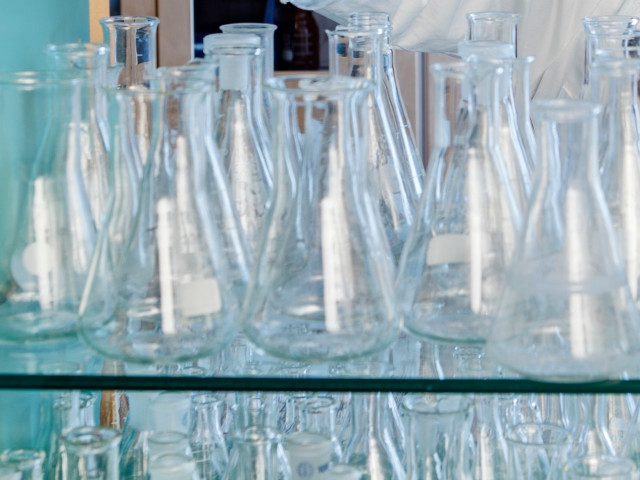- Balancing chemical reactions, stoichiometry
- Oxidation and reduction
- An introduction to the theoretical foundations of chemistry: electronic structure of atoms, chemical bonding, isomerism, chemical reactivity, the structure of the periodic system
- General thermodynamics, enthalpy, entropy, Gibbs energy, thermochemical problems
- Ideal gas law, partial pressure
- Chemical equilibrium and the law of mass action with applications to acid-base equilibria, complex equilibria, solubility equilibria, redox equilibria, and partition equilibria
- pH in acid and basic solutions
- Chemical nomenclature
- Electrochemistry, electrochemical cells
- Chemical instrumental methods of analysis, spectroscopy
- Historical examples of advances in chemistry and environmental problems with relations to chemistry
- Practical laborations, chemical work environment, safety regulations, chemical analysis and synthesis
KA1020 Fundamental Chemistry 7.5 credits
This course has been discontinued.
Last planned examination: Spring 2024
Decision to discontinue this course:
The course is being discontinued at the start of Autumn 2022.
The course was given for the last time in Spring 2022. The last opportunity to take an examination in the course is given in Spring 2024

Information per course offering
Course offerings are missing for current or upcoming semesters.
Course syllabus as PDF
Please note: all information from the Course syllabus is available on this page in an accessible format.
Course syllabus KA1020 (Autumn 2022–)Content and learning outcomes
Course contents
Intended learning outcomes
After the course the student should be able to:
- Balance chemical reactions, solve stoichiometric and thermodynamic problems
- Solve problems related to atomic structure and chemical bonding
- Solve problems related to chemical equilibria, gases, electrochemistry, organic nomenclature, and spectroscopy
- Perform elementary chemical laboratory work with respect to work environment, safety regulations, and safe handling of chemicals, as well as compile and communicate the results in writing in a clear manner.
Literature and preparations
Specific prerequisites
Completed upper secondary education including documented proficiency in English corresponding to English A. For students who received/will receive their final school grades after 31 December 2009, there is an additional entry requirement for mathematics as follows: documented proficiency in mathematics corresponding to Mathematics A.
And the specific requirements of mathematics, physics and chemistry corresponding to Mathematics E, Physics B and Chemistry A.
Literature
Examination and completion
If the course is discontinued, students may request to be examined during the following two academic years.
Grading scale
Examination
- LAB1 - Laborations, 2.0 credits, grading scale: P, F
- TEN1 - Written exam, 5.5 credits, grading scale: A, B, C, D, E, FX, F
Based on recommendation from KTH’s coordinator for disabilities, the examiner will decide how to adapt an examination for students with documented disability.
The examiner may apply another examination format when re-examining individual students.
Other requirements for final grade
Written examination (TEN1; 5,5 credits)
Labaratoy Work (LAB1; 2 credits)
The final rating is the same as on the examan obtained by approved laboratory work.
Examiner
Ethical approach
- All members of a group are responsible for the group's work.
- In any assessment, every student shall honestly disclose any help received and sources used.
- In an oral assessment, every student shall be able to present and answer questions about the entire assignment and solution.